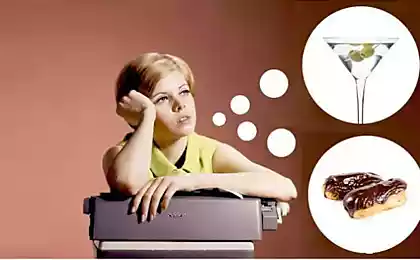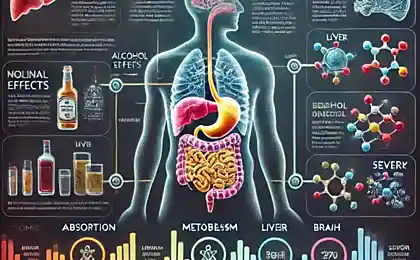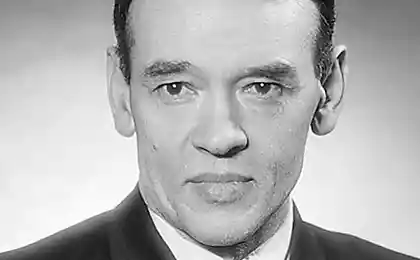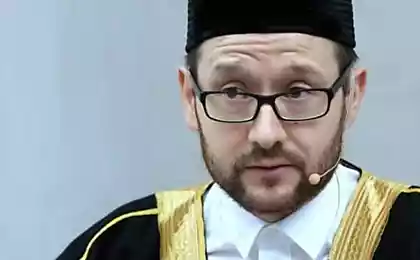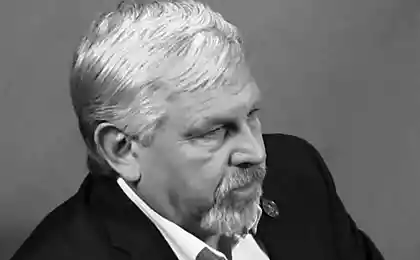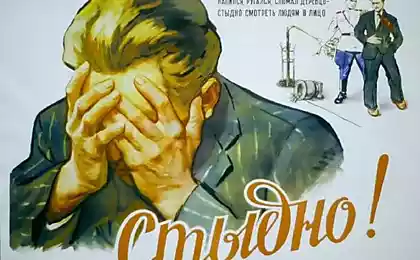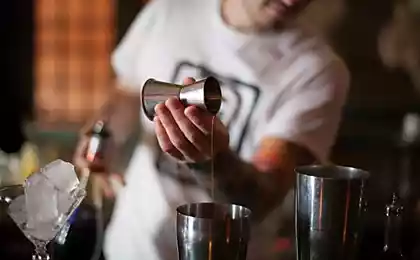463
The brain is more creative in the sleepy and drunk
Translation of the article Jonah Lehrer from the Frontal Cortex blog. Thought Lehrer posed in the title, still remains a hypothesis, but it fits well with the ideas of John of Guildford, who formulated the three criteria of creativity: fluency, flexibility and originality. I think nobody would dispute that in a drunken state, the brain works very fluently and much more flexible.
Solve the puzzle: move one line so that the equation was correct.
IV = III + III
The solution is quite obvious — it is necessary to put the first "I" to the right of the "V" and then get: VI = III + III. No wonder that 92% of people, according to researches, quickly solve this problem. Truly surprising thing is that about 90% of people with damage to the prefrontal cortex of the brain (such injuries deprive people of ability to focus) also found a solution.
Here is another equation that is more complicated:
III = III + III
This problem was solved only 43% of healthy people. The others looked at the numbers for several minutes and gave up. Among patients, unable to focus, the correct answer was given by 82%. Where did these strange results? The explanation lies in the nature of the problem. To solve the second equation, it is necessary to transform the "+" sign to "=" (III = III = III). People with a healthy brain it is difficult to solve it, because they are not used to pay attention to the mathematical operators, they used to fixate on numbers. Patients with damaged brain do not pay attention to the restrictions by asking a wider range of search for solutions. And the result was twice as better people with a healthy brain.
Of course, this does not mean that people with attention deficit have absolute advantage. A person with a healthy brain in any case more competitive. But in some areas, for example, in creative problem solving, inability to focus becomes an advantage. It helps to get rid of this limitation and use irrelevant, it would seem that information. The less we control our thoughts, the easier it is to find the answer.
Here are the results of recent studies as evidence. Scientists have studied 428 students, most of whom are in their biological habits was "owls." At first they were checked by puzzles on inspiration, when the decision comes by itself and suddenly, for example:
A man has married 20 women in a small town. All of the women are still alive and none of them are divorced. The man has broken no laws. Who is the man?
Marsha and Marjorie were born on the same day of the same month of the same year to the same mother and the same father, yet they are not twins. How is that possible?
(Answers: the priest, triplets)
The other half of the questions were standard mathematical tasks that required insight, and the usual analytical thinking, and hence focusing. The subjects were given 4 minutes to solve each task. Half of the students tested at 8:30 in the morning, the second half at 17:00.
The results of the study showed that fatigue has a positive effect on creativity. When students experienced the least optimal time for them ("owl" in the morning), they are twice better coped with tasks on inspiration. Performance on analytical tasks remained the same at any time of the day.
The main conclusion is that sleepy students, like humans with damage to the prefrontal cortex, have received benefit from his fortune. Their thoughts had been wandering and disorganized, began to arise of the Association, which in the normal state would be swept away.
If you still experience skepticism, I will tell about one more study. Scientists from the University of Illinois compared the success of the sober and the drunken (alcohol concentration in blood is 0.075) students in the solution of problems on inspiration. Drunk has solved more problems in less time than sober. Their total score was 30% better.
The explanation again is that drunk students were not able to focus. Alcohol caused about the same condition as the "owls" early in the morning. In this state the brain is more difficult to eliminate unlikely conclusions and distant associations, and these things are critical to imagination. So when the next time will be to solve the creative challenge, avoid coffee and try to concentrate. Relax, set the alarm early and indulge by a tangled stream of thoughts. And if does not help — print a can of beer.
Source: /users/1108
Solve the puzzle: move one line so that the equation was correct.
IV = III + III
The solution is quite obvious — it is necessary to put the first "I" to the right of the "V" and then get: VI = III + III. No wonder that 92% of people, according to researches, quickly solve this problem. Truly surprising thing is that about 90% of people with damage to the prefrontal cortex of the brain (such injuries deprive people of ability to focus) also found a solution.
Here is another equation that is more complicated:
III = III + III
This problem was solved only 43% of healthy people. The others looked at the numbers for several minutes and gave up. Among patients, unable to focus, the correct answer was given by 82%. Where did these strange results? The explanation lies in the nature of the problem. To solve the second equation, it is necessary to transform the "+" sign to "=" (III = III = III). People with a healthy brain it is difficult to solve it, because they are not used to pay attention to the mathematical operators, they used to fixate on numbers. Patients with damaged brain do not pay attention to the restrictions by asking a wider range of search for solutions. And the result was twice as better people with a healthy brain.
Of course, this does not mean that people with attention deficit have absolute advantage. A person with a healthy brain in any case more competitive. But in some areas, for example, in creative problem solving, inability to focus becomes an advantage. It helps to get rid of this limitation and use irrelevant, it would seem that information. The less we control our thoughts, the easier it is to find the answer.
Here are the results of recent studies as evidence. Scientists have studied 428 students, most of whom are in their biological habits was "owls." At first they were checked by puzzles on inspiration, when the decision comes by itself and suddenly, for example:
A man has married 20 women in a small town. All of the women are still alive and none of them are divorced. The man has broken no laws. Who is the man?
Marsha and Marjorie were born on the same day of the same month of the same year to the same mother and the same father, yet they are not twins. How is that possible?
(Answers: the priest, triplets)
The other half of the questions were standard mathematical tasks that required insight, and the usual analytical thinking, and hence focusing. The subjects were given 4 minutes to solve each task. Half of the students tested at 8:30 in the morning, the second half at 17:00.
The results of the study showed that fatigue has a positive effect on creativity. When students experienced the least optimal time for them ("owl" in the morning), they are twice better coped with tasks on inspiration. Performance on analytical tasks remained the same at any time of the day.
The main conclusion is that sleepy students, like humans with damage to the prefrontal cortex, have received benefit from his fortune. Their thoughts had been wandering and disorganized, began to arise of the Association, which in the normal state would be swept away.
If you still experience skepticism, I will tell about one more study. Scientists from the University of Illinois compared the success of the sober and the drunken (alcohol concentration in blood is 0.075) students in the solution of problems on inspiration. Drunk has solved more problems in less time than sober. Their total score was 30% better.
The explanation again is that drunk students were not able to focus. Alcohol caused about the same condition as the "owls" early in the morning. In this state the brain is more difficult to eliminate unlikely conclusions and distant associations, and these things are critical to imagination. So when the next time will be to solve the creative challenge, avoid coffee and try to concentrate. Relax, set the alarm early and indulge by a tangled stream of thoughts. And if does not help — print a can of beer.
Source: /users/1108
